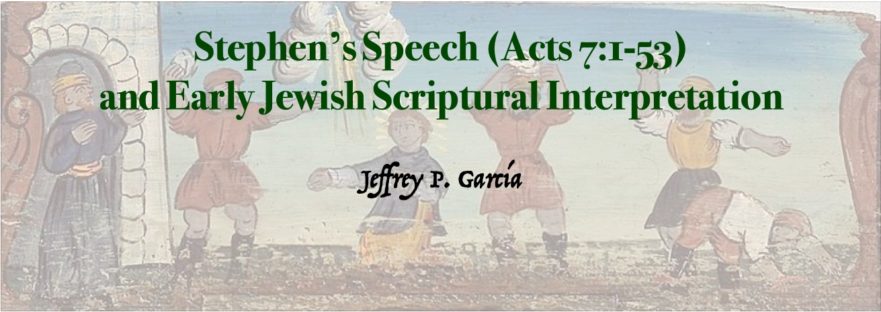Discover connections between Stephen’s Speech and ancient Jewish literature.
Generations That Repented Long Ago
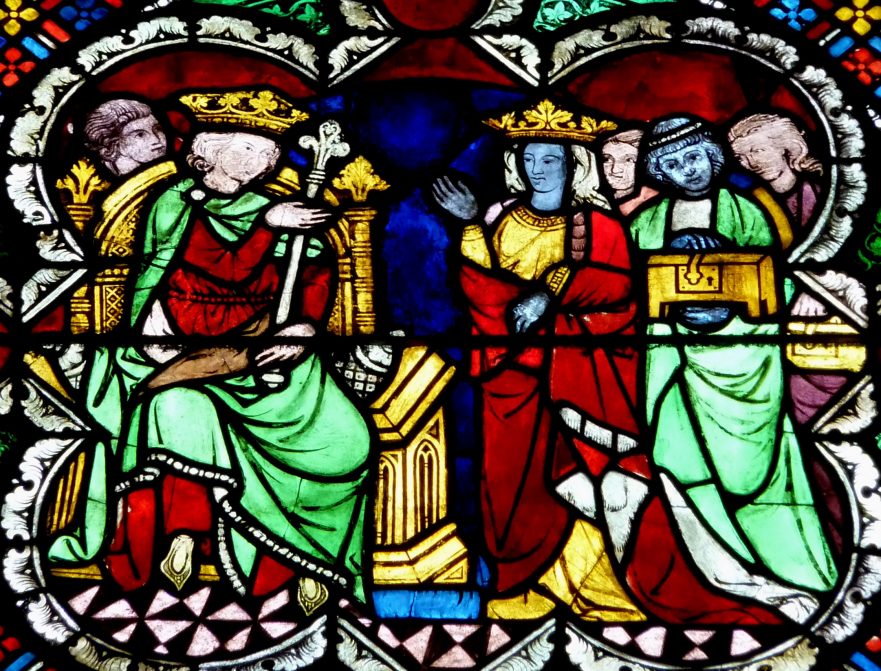
Did Jesus condemn his contemporaries for failing to recognize him as the Messiah or for something more insidious?
Is Yeshua Superior to the Law? Reappraising the Antitheses in Matthew 5
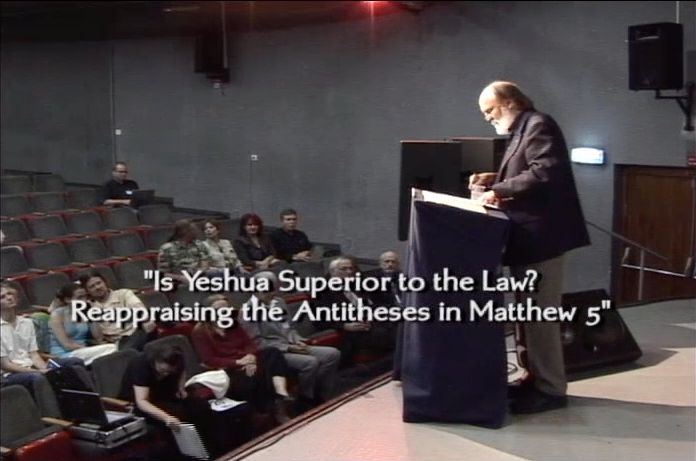
The complete 2006 lecture is now accessible to JP users. View now!
Renewed Covenant and Jeremiah’s New Covenant in Second Temple Judaism and Jesus’ Movement
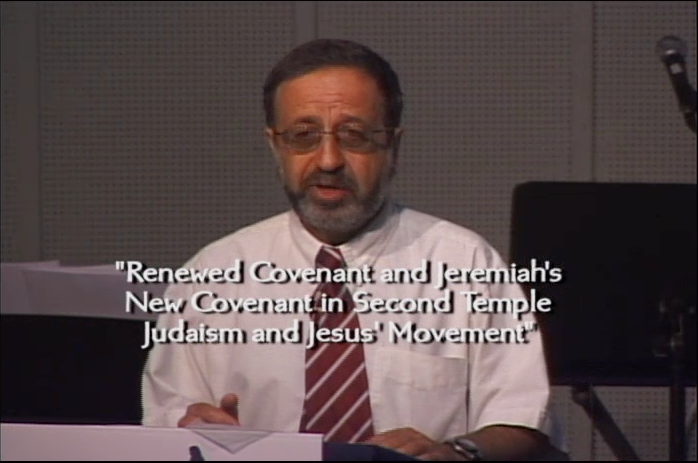
The complete 2006 lecture is now accessible to JP users. View now!
Matthew 1:1-25: In the Year of Jubilee?

The genealogies of Matthew and Luke reflect diverging Jewish opinions about the time for the advent of the redeemer.
Matthew 2:1-23: A Nazorean Shall Be Called

Where in the Hebrew Scriptures is it expected that the Redeemer will be called a Nazarene or come from Nazareth?
The Messianic Consciousness of Jesus: Lesson 02
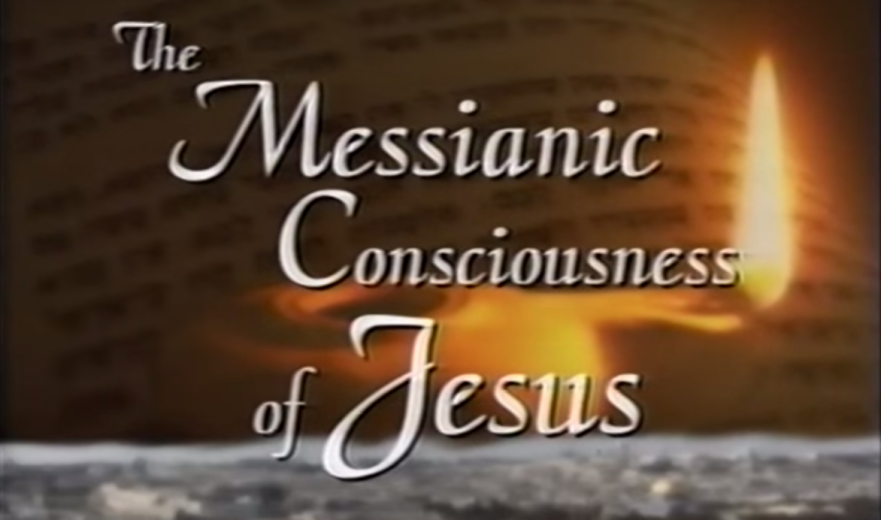
In Lesson Two of The Messianic Consciousness of Jesus series, Dr. Robert L. Lindsey examines the interrogation of Jesus by the chief priests and the origin of the Son of God concept.
Video Clip: Dwight Pryor on “Is Jesus Superior to the Law?”

In this video Dwight Pryor discusses Jesus’ attitude toward the Jewish Law.
Notley Lecture: “Between the Chairs: New Testament Evidence for the Hebrew Jesus Spoke”
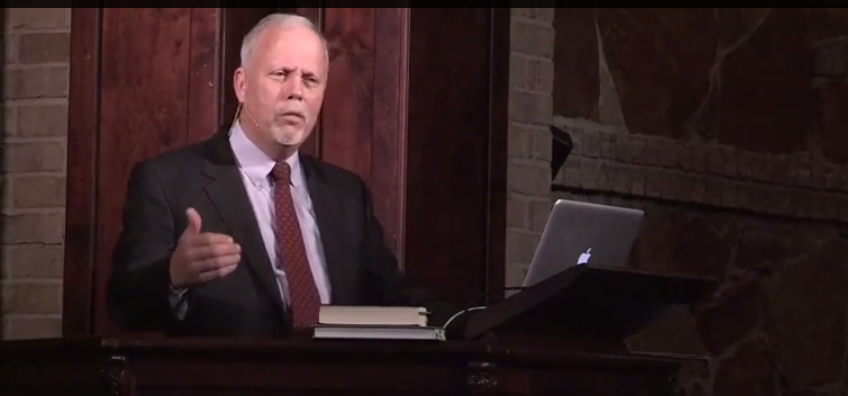
Dr. R. Steven Notley is a contributor to Jerusalem Perspective and member of the Jerusalem School of Synoptic Research. He is Professor of New Testament and Christian Origins at Nyack College in New York. In this lecture Dr. Notley discusses examples of how the Hebrew language influenced the Greek text of the canonical Gospels.
LOY Excursus: The Kingdom of Heaven in the Life of Yeshua
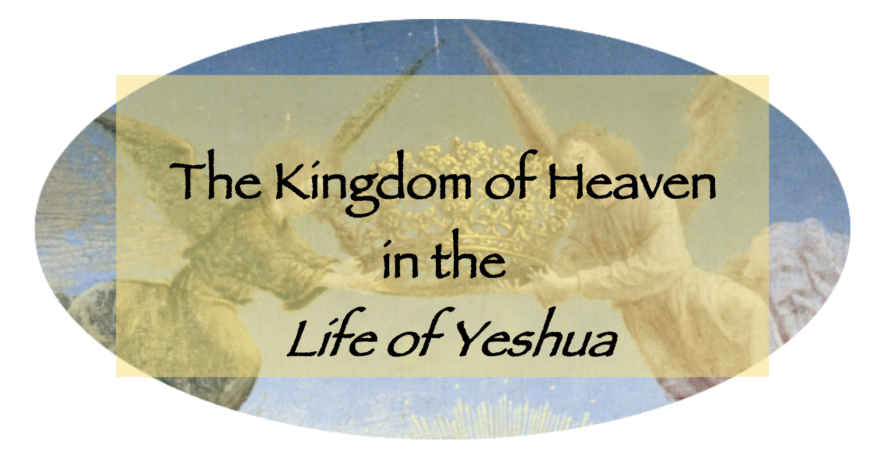
In this excursus to the Life of Yeshua commentary, David N. Bivin and Joshua N. Tilton delve into the ancient Jewish concept of the Kingdom of Heaven and discuss the ways in which Jesus made use of this concept in his own unique style.
Who Made the “Omission,” Luke or Mark?

Did Luke see and omit Mark 6:45-8:21, or did Mark see and omit Luke 9:51-18:14? The present article explores the possibility that the Markan pericope, “What Makes a Person Impure” in Mark 7:1-23 is dependent upon the Lukan pericope on “Discourse against the Pharisees” in Luke 11:37-41.
“Treasure in Heaven”: Examining an Ancient Idiom for Charity
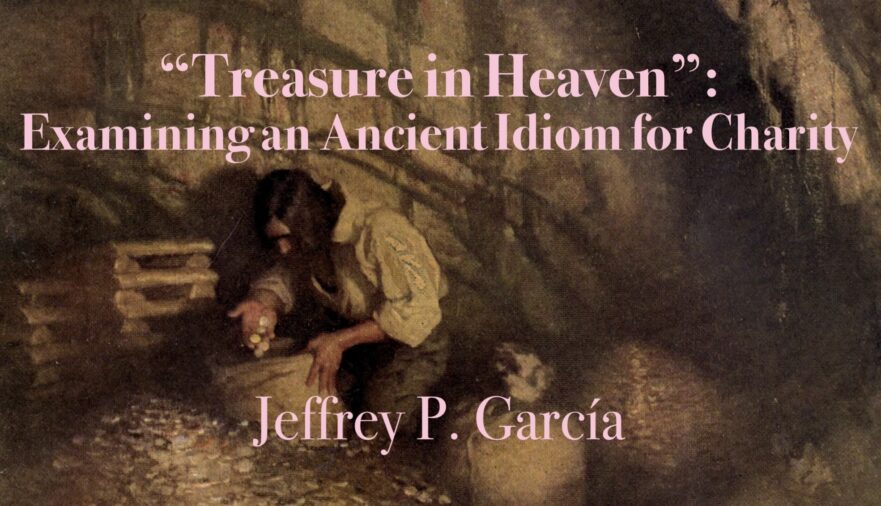
The growing value placed on charity in the first century C.E. cannot be overstated. As a new sensitivity developed within Judaism that challenged the compensatory “blessings and curses” paradigm of the Hebrew Bible (cf. Deut. 28) as a basis to serve God, so there was a shifting emphasis towards altruistic love embodied in the Levitical commandment, “…and you shall love your neighbor as yourself (וְאָהַבְתָּ לְרֵעֲךָ כָּמוֹךָ אֲנִי יי; Lev. 19:18).”
“It Is Said to the Elders”: On the Interpretation of the So-called Antitheses in the Sermon on the Mount

Jesus’ Sermon on the Mount deserves endless study, and the more one studies ancient Jewish sources, the clearer the meaning of these words of Jesus becomes.
I happily stand corrected!
After reading my “Jehovah, A Christian Misunderstanding” article, a Jerusalem Perspective Member provided several impressive references, pointed out that the Christian reading “Jehovah” can be traced to Raymond Martin’s Pugeo Fidei (1270 A.D.), and may have originated much earlier, even as early as the ninth century!
The Apostolic Decree and the Noahide Commandments
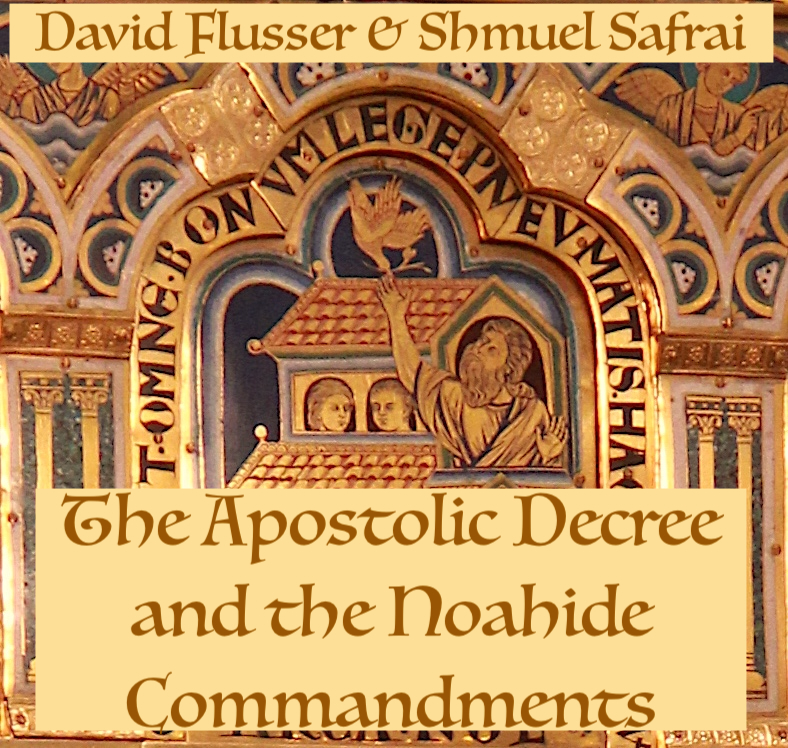
Jerusalem Perspective is pleased to make available to the English-speaking world this important article written originally in German by David Flusser and Shmuel Safrai: “Das Aposteldekret und die Noachitischen Gebote,” in Wer Tora mehrt, mehrt Leben: Festgabe fur Heinz Kremers (ed. E. Brocke and H.-J. Borkenings; Neukirchen-Vluyn, 1986), 173-192.
The “Hypocrisy” of the Pharisees

Without reading the Scriptures carefully, and without a familiarity with Second Temple-period extra-biblical sources, a simple reader of the New Testament might assume that a majority of the Pharisees were hypocrites and that the Pharisees as a movement were indeed a “brood of vipers.” As a result of this common Christian assumption, the word “Pharisee” has become a synonym for “hypocrite” in the English language.
Jesus and the Enigmatic “Green Tree”

Jesus made bold messianic claims when he spoke. To thoroughly understand these claims, however, we must get into a time machine and travel back in time to a completely different culture, the Jewish culture of first-century Israel. We must acculturate ourselves to the way teachers and disciples in the time of Jesus communicated through allusions to Scripture.
Keys of the Kingdom: Allusion to Divinity?
The more we know and understand the historical, cultural and linguistic background of the Bible, the more we are able to discern elements in the biblical text that heretofore have gone unnoticed. These can be elements that can greatly increase our understanding of the biblical text, reinforce our traditional conceptions, or at times radically transform our understanding by revealing totally unexpected information that affects how the texts would have been originally understood.

